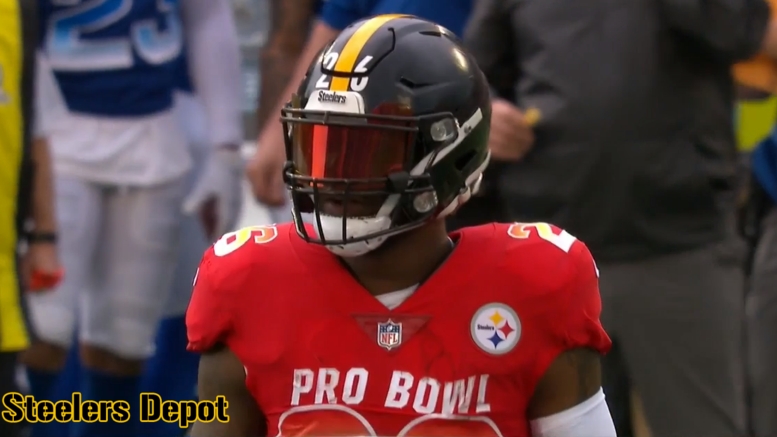One of the odd things about the Le’Veon Bell contract negotiations, whether they be phantom or otherwise, is the fact that the player, at least based on last season, is fully willing to take control of the conversation. Bell said last week that the two sides have already been in negotiations. Adam Schefter said they weren’t.
But it doesn’t particularly make sense for him to make things up. What is the purpose of doing so? If there have been no negotiations, then of what purpose was it to create a fictitious artificial deadline, as he mentioned?
What we do know, which is not always the case, is that Bell is willing to be hands-on. Reportedly, his agent and the team had worked out a deal that those two parties were satisfied with, but it was he who turned down the deal. Any player of course has the power to veto a deal, but you never really hear of that happening.
The real question is whether or not Bell is operating under the same practice this offseason. I suppose it’s hard to imagine that he would not be. Why would he accept a similar contract to the one that he turned down last offseason, for example, after coming off a first-team All-Pro season?
Either way, this is shaping up to be either a relatively quick, or a rather drawn out, contract negotiation. I suspect that a long-term deal will be reached prior to the date at which the franchise tag can be applied. Failing that, a deal probably will not get done before the tag deadline, and at that point it would probably drag out until the middle of July when the deadline for negotiating new contracts with tagged players is reached.
The interesting part of that discussion is the fact that Bell was clearly unhappy with the tagging process a year ago, and even threw out there they he would consider holding out into the season or even retiring if he were forced to play under the tag again.
Empty threats, most likely, but could that dissatisfaction lead him to becoming more amenable to getting a deal done? After all, there are only a handful of players who have been given the franchise tag more than once, and it is not particularly desirable for either side.
The franchise tag is not the ideal situation for either the player or the team. It’s nice for players coming off their rookie contracts, sure. It guarantees them a huge pay raise for a season. But when you already hit that mark, you want to find stability.
I am of the inclination that the key to getting a deal done with Bell will be the guaranteed money, which the Steelers tend to be sheepish doing. They rarely guarantee more than 20 percent or so of a player’s contract, and usually reserve larger portions for outside signings.








